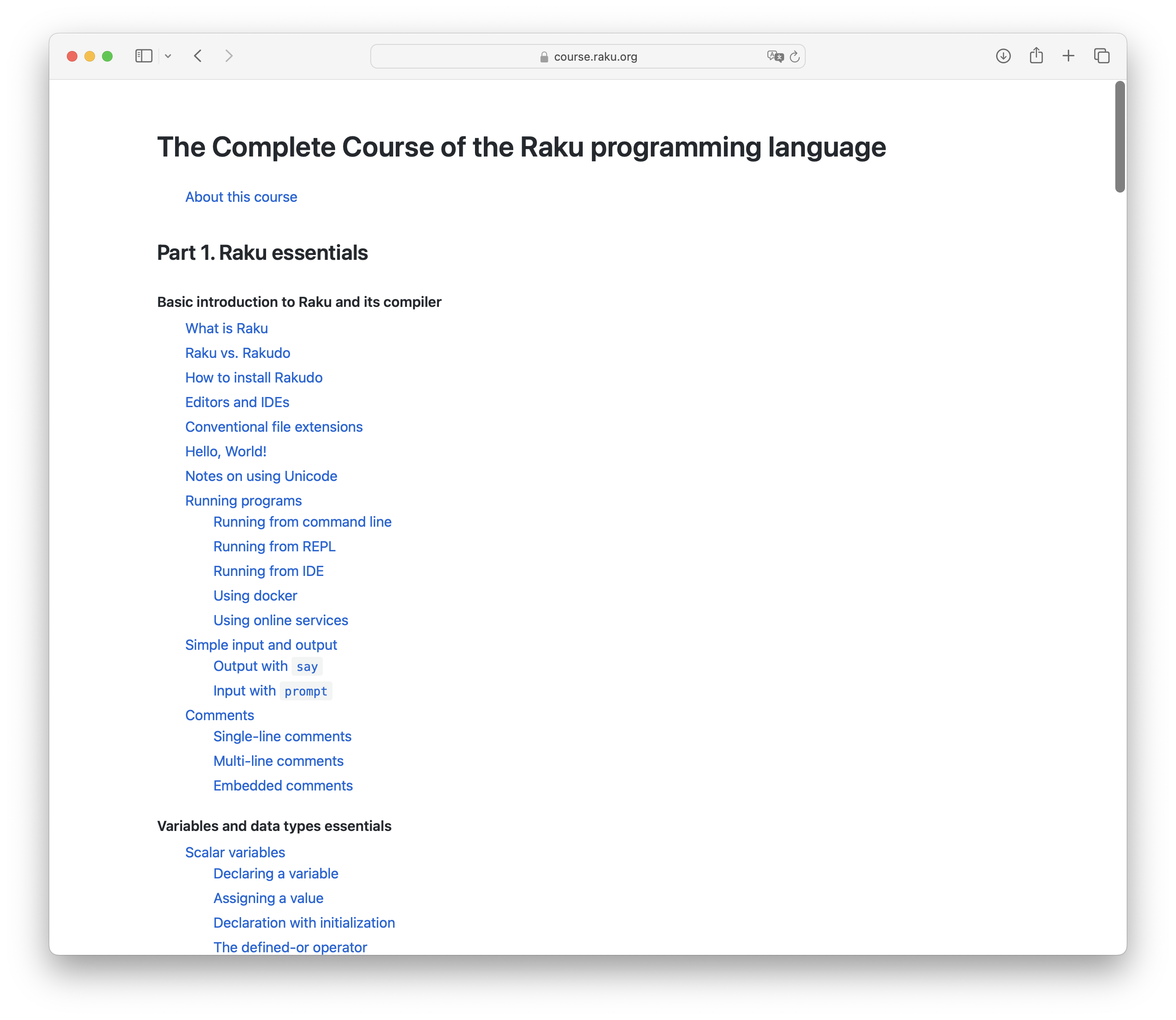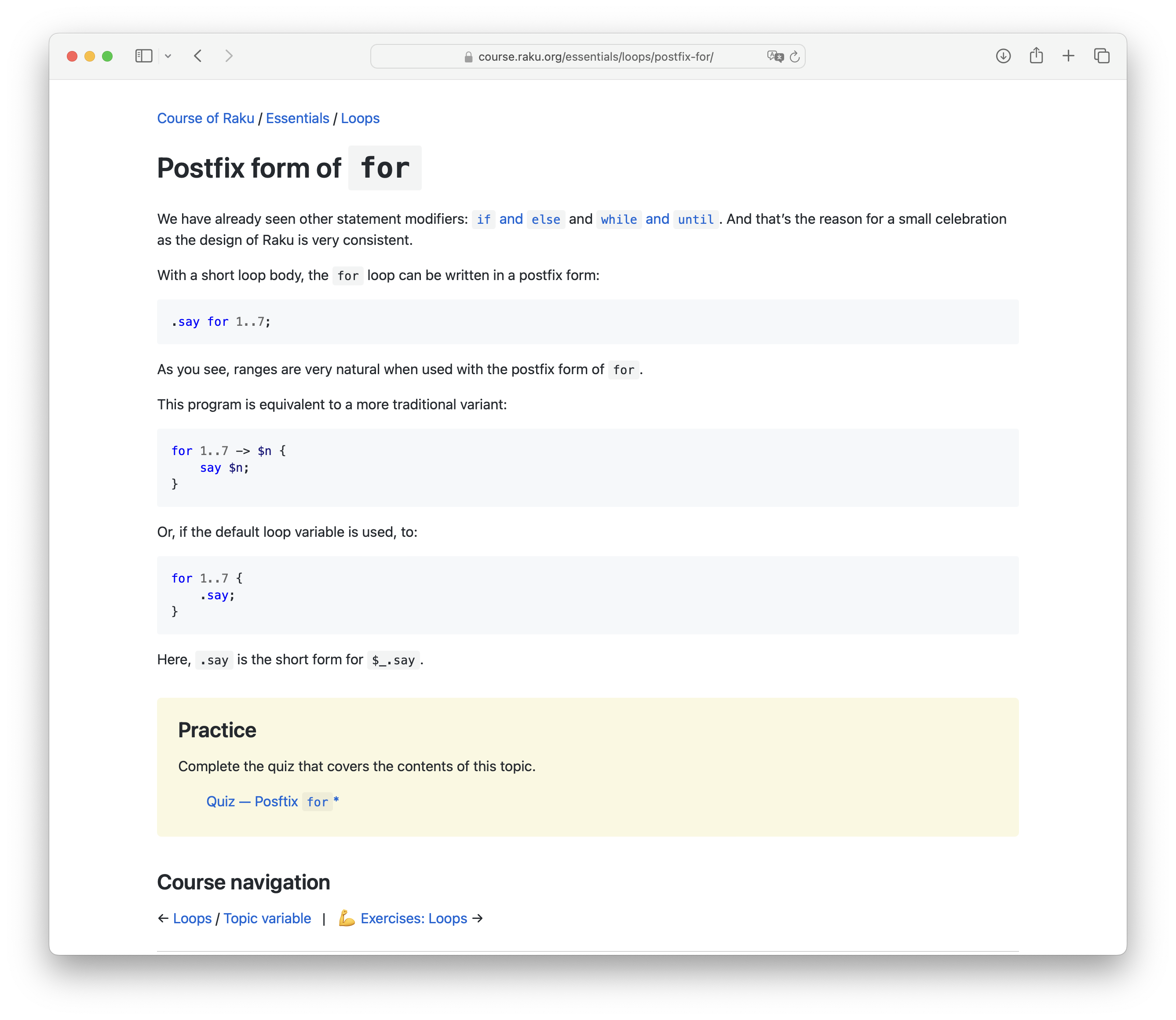This course covers all the main aspects of the language that you need to use in your daily practice. The course consists of five parts that explain the theory and offer many practical assignments. It is assumed that you try solving the tasks yourself before looking to the solution.
If you’re only starting to learn Raku, you are advised to go through all the parts in the order they are listed in the table of contents. If you have some practice and you want to have some specific training, you are welcome to start with the desired section.

Structure
The course is divided into five parts, each of which includes several sections, which in turn include a number of topics (or, merely saying, different pages with their unique URL).
The course includes materials of the following four types:
- Theory that covers the current topic
- Quizzes that test your understanding of the theory of the topic and/or the section
- Exercises for the material of the whole section
- Answers to the exercises
Sometimes, practical assignments (both quizzes and exercises) give additional information on the subject, so to make the most of the course, it is recommended you do not skip them.
Below each page, there is a navigation block that you can use to traverse the entire course. You can also always jump to the desired section using the breadcrumbs menu at the top of the page.

While the navigation guides you through the assignments in a particular order, you can solve them in more or less random order within the current section or topic.
Visit the course: 🦋 course.raku.org.
The creation of the course is supported by the grant of The Perl Foundation. You can use the course for self-study or as a set of ready-to-use materials for teaching others. The commercial usage in classes is allowed without permission. Releasing the course as a separate product must be first negotiated with the author.